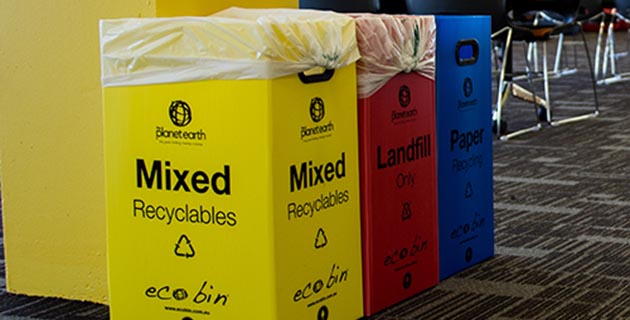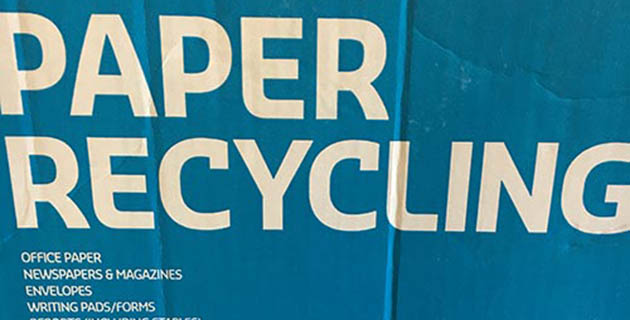Sustainability
- Home
- Locations
- What you can do
- LiFE Framework
- Sustainable Development Goals
- About us
- Grants
- Events
- Contact us
Now searching for:
All business, industry and communities share legal and social responsibilities to promote and protect human health and the environment. We do this by safely, responsibly and efficiently managing and reducing waste, maximising waste reuse, recycling, and finding opportunities to generate resources.
As a large organisation, we deal with staff, student, visitor and supplier waste. This means Charles Sturt University contends with a host of operational waste issues, not least the increasing costs of disposal charges and landfill taxes, but also the possible future requirement to measure and report scope 3 carbon emissions relating to waste through the National Greenhouse and Energy Reporting Scheme (NGERS).
There are increasingly stringent legal requirements for handling and disposing of our waste safely and efficiently. By meeting these requirements, Charles Sturt University avoids enforcement action, but may also cut costs or save money.
Many legislative requirements apply to all institutional waste, while some apply only to specific types of waste.
Benefits of implementing a successful resource and waste management strategy include:
This framework was benchmarked in 2015. The below graph illustrates our progress towards best practice across the eight (8) activity areas. The green bars reaching four (4) highlight best practice and the lower bars in blue indicate Charles Sturt University’s current baseline ratings.
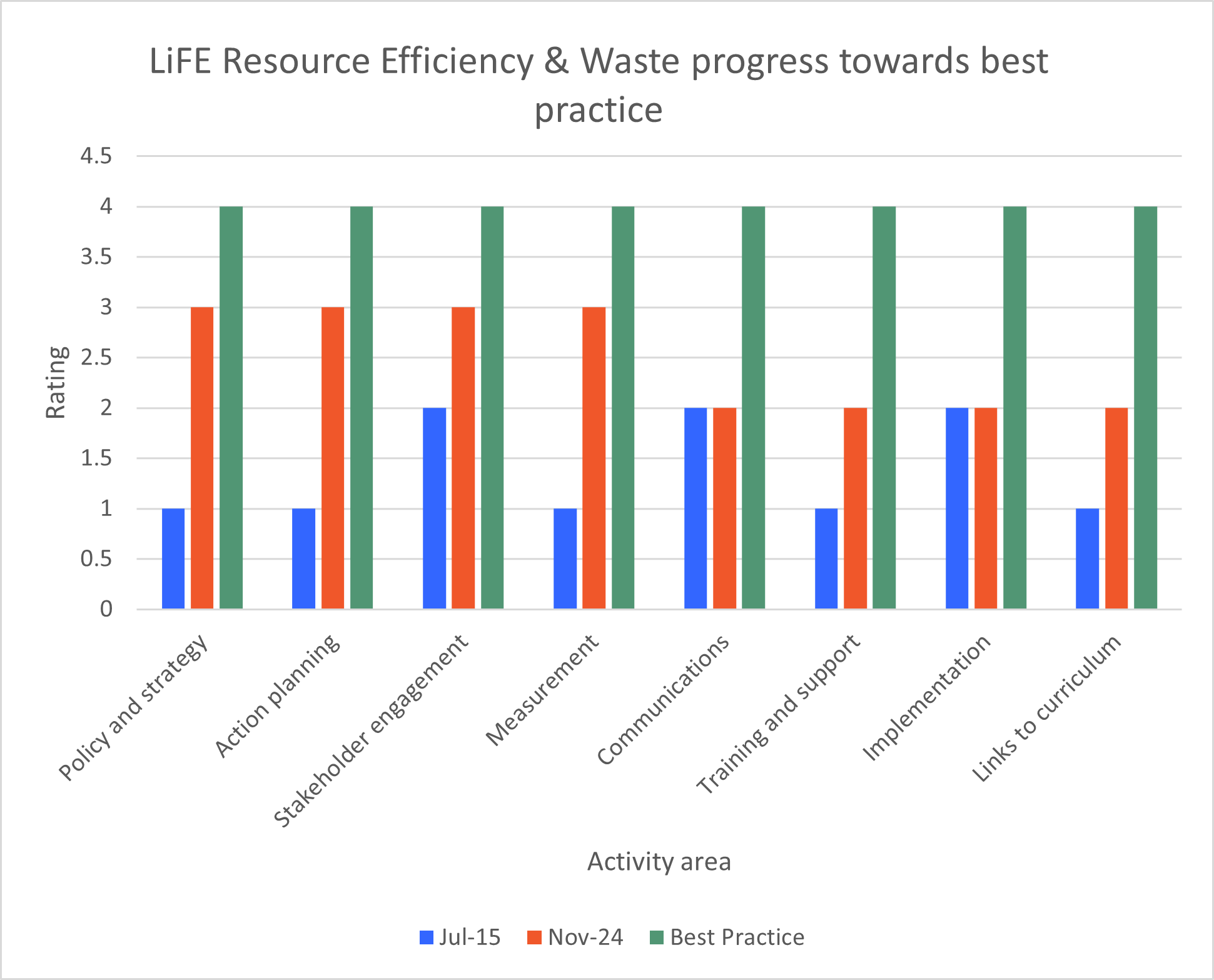
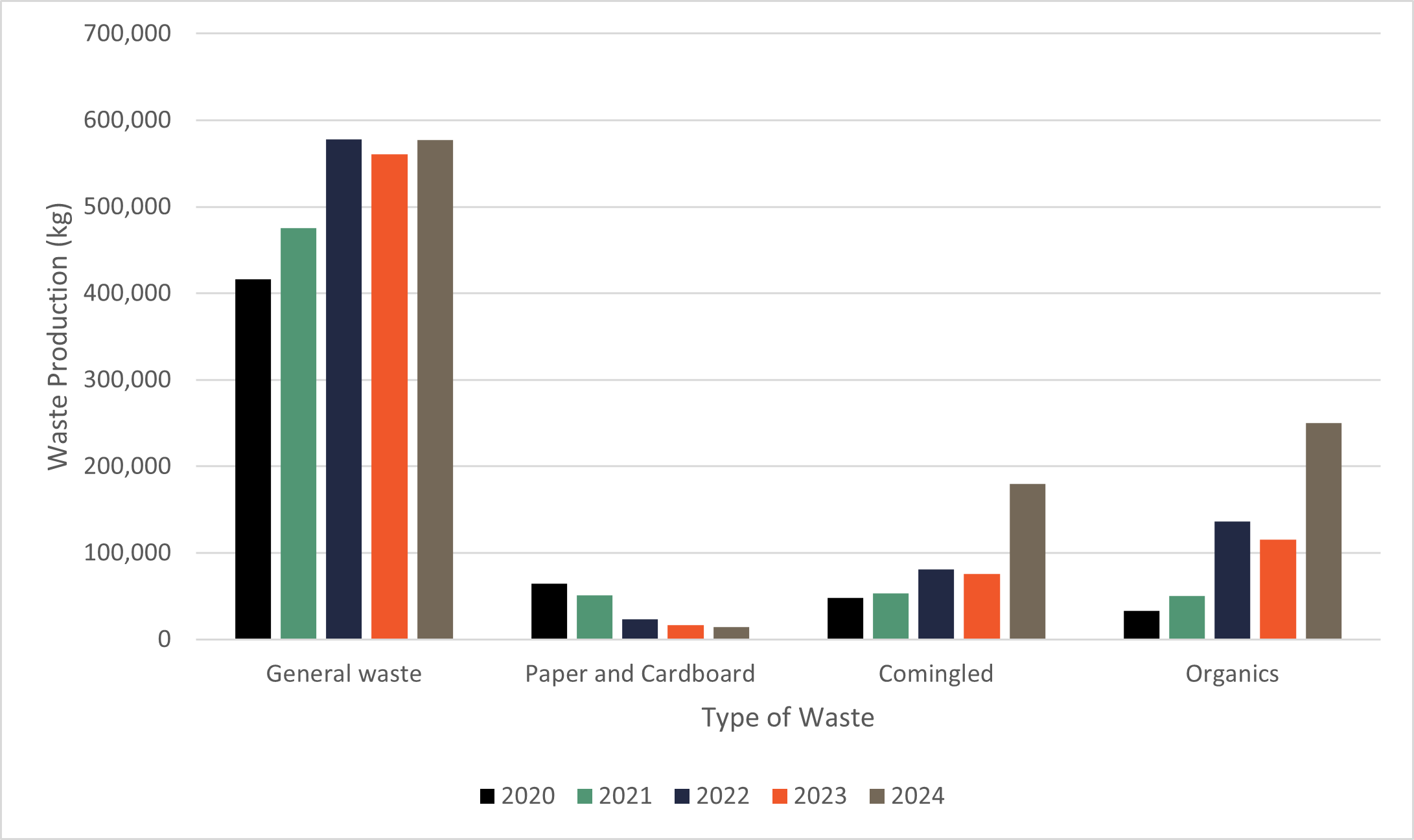
Did you know contaminating recycling means that often the whole bin ends up going to landfill?
By knowing what goes where
you can increase the amount of resources we recover through the recycling system.
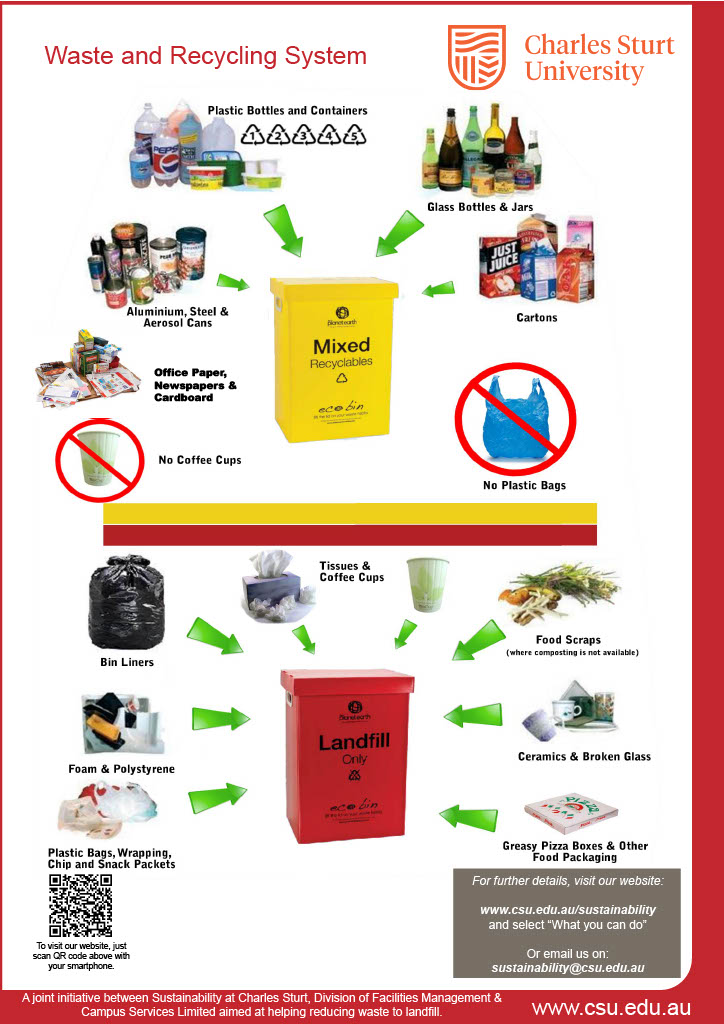
You can reduce waste on campus and in your office by using the co-mingled (yellow) and paper (blue) bins provided.
If you require a new or replacement bin, you can raise a Facilities Maintenance Request or contact your office administrator to raise on your behalf.
Charles Sturt University aligns our research, policies, procedures, and other work with the UN Sustainable Development Goals (SDGs). These are the most relevant SDGs for this initiative.

